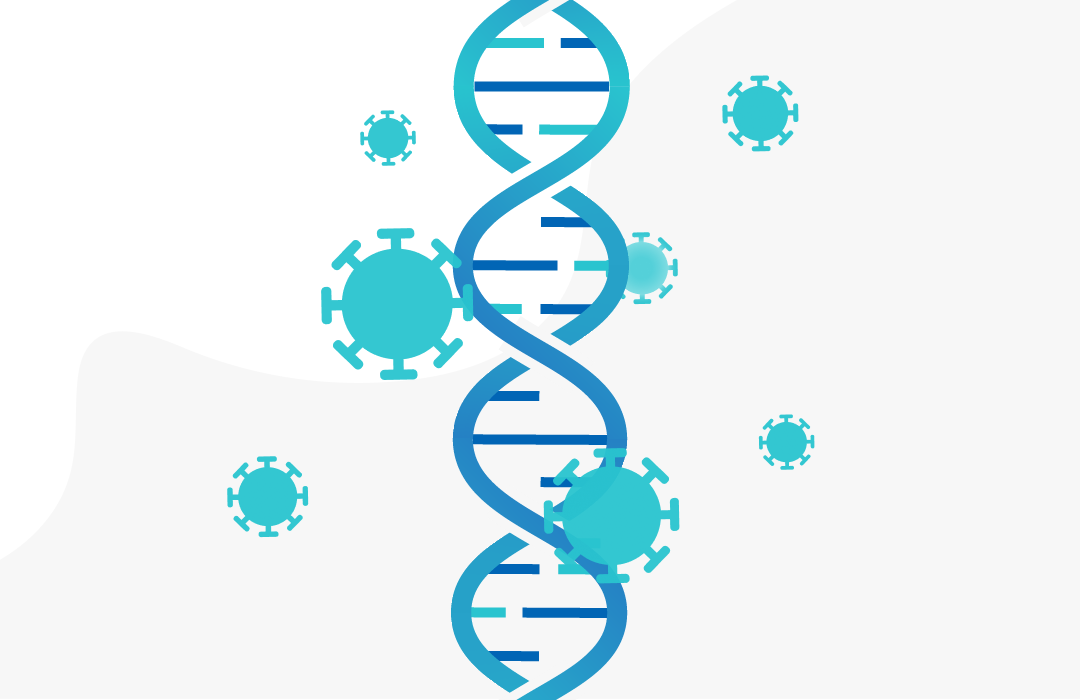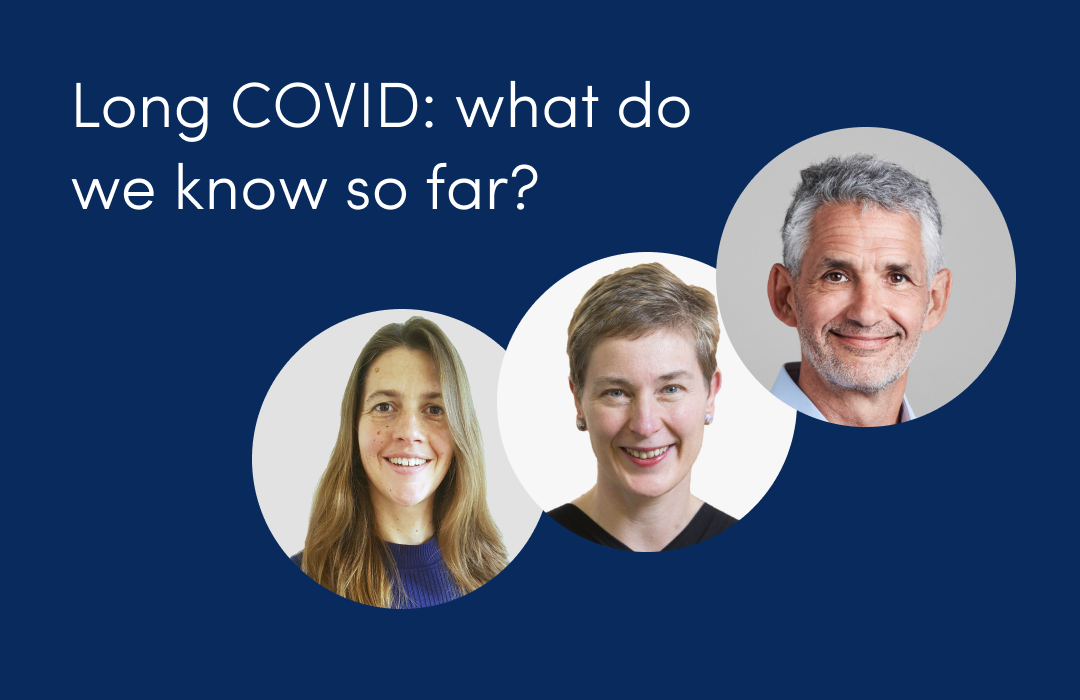
How do the different COVID-19 vaccines work and which one will you get?
January 26, 2021

This article has not been updated recently
There are currently three COVID-19 vaccines approved for use in the UK: two mRNA-based vaccines from Pfizer/BioNTech and Moderna, and a virus-based vaccine from AstraZeneca and Oxford University.
These vaccines use different approaches to provide immunity against coronavirus, and have different levels of effectiveness.
Let’s take a closer look at how these vaccines work, their safety and effectiveness, and which one you might be offered.
How do vaccines work?
Vaccines train the immune system to recognise harmful organisms like viruses or bacteria that cause disease, known as pathogens.
They work by introducing a harmless version of a pathogen (known as an antigen) to our immune cells, so they can safely learn what the pathogen looks like. Then they’re ready to recognise and target the invader for destruction when it’s encountered in the wild.
Importantly, no vaccine offers 100% immunity. Humans are diverse in their makeup, and all immune systems will respond slightly differently to a vaccine. In addition, some people can’t be vaccinated for medical reasons.
But as long as most people who receive a COVID-19 vaccine develop immunity against the disease, known as community or ‘herd’ immunity, it will help to stop the spread. We need around 60% of the population to be immune to stop the spread of the virus.
How do COVID-19 vaccines work?
All three COVID-19 vaccines currently approved for use in the UK work by giving the immune system the genetic instructions encoding a small part of the SARS-CoV-2 coronavirus called the spike protein, which is found on the outside of the virus.
When a vaccine enters the body’s cells, it instructs them to make the COVID-19 spike proteins. Immune system cells then recognise these strange spike proteins as dangerous and start an immune response.
This immune response includes the creation of special memory cells, which remember the shape of the spike proteins for the next time COVID-19 is encountered. If that happens, the immune system will be ready to quickly stop the infection.
The three vaccines all work in the same basic way, but differ in how the genetic instructions for the spike protein are delivered.
Oxford-AstraZeneca: virus-based COVID-19 vaccine
The Oxford University/AstraZeneca vaccine is based on a chimpanzee common cold virus that has been genetically changed so that it cannot cause illness in humans.
The cold virus is really good at infecting cells, so the scientists developing it have used it as a Trojan horse to smuggle in a strand of DNA containing the instructions for part of the spike protein. The viral DNA is ‘read’ by cells and used to make spike proteins, which trigger an immune response.
Virus-based vaccines like this one have been in development for many years, and have been tested against similar viruses including SARS and MERS.
Pfizer/BioNTech and Moderna: mRNA-based COVID-19 vaccines
The Pfizer/BioNTech and Moderna vaccines are a little different. They contain mRNA (messenger RNA) - a kind of molecular ‘photocopy’ of DNA. Special machinery in our cells, known as ribosomes, use mRNA as direct instructions to build proteins.
In both the Pfizer/BioNTech and Moderna vaccines, an mRNA strand carrying the instructions for making part of the spike protein is made in the lab and packaged up in tiny oily capsules, known as lipid nanoparticles.
Once injected, these nanoparticles make their way to cells, which use the mRNA to manufacture COVID-19 spike proteins. These proteins are recognised by immune cells and trigger a response, which is then ‘remembered’ for any future encounters with the real virus.
Like the viral vaccine, mRNA vaccines have also been in development and clinical trials for many years.
How well do COVID-19 vaccines work?
The Pfizer vaccine has 95% efficacy. This means that vaccinated people have 95% less chance of infection compared to those unvaccinated. For the Moderna vaccine, it’s 94%. In both cases, this level of protection is reached after two doses.
The Oxford/AstraZeneca vaccine has 62 – 90% efficacy after two doses, depending on the size of the first dose. Although lower than the other vaccines, this is still considered highly protective. For comparison, flu jabs are typically between 40-60% effective.
There’s a lot of discussion about the timing between vaccine doses, with second doses being delayed up to 12 weeks - longer than the dosing schedule that was tested in clinical trials of any vaccine.
It’s therefore really important that everyone who has been vaccinated keeps logging their health daily with the ZOE COVID Symptom Study app to monitor the effectiveness of vaccines and the chances of reinfection.
Are COVID-19 vaccines safe?
All three vaccines have been through clinical trials, a rigorous testing process that involves tens of thousands of volunteers.
In addition, independent experts working for regulators across many different countries have reviewed the data from the trials and agreed that the vaccines are safe and effective for national rollout.
We also have to balance the small unknown risks of a new vaccine against the harms that already exist from COVID-19, which has currently killed more than 2 million people worldwide, and left countless more with serious long term health issues.
You can find out more about vaccine safety by watching our recent expert webinar: Are COVID-19 vaccines really safe?
Which COVID-19 vaccine will I get?
As all of the vaccines have been shown to be safe and effective, the advice for most people is that you should accept whichever one you are offered. Once you’re vaccinated, not only will you be protecting yourself, but also your loved ones and the wider community.
We do know that the Pfizer/BioNTech vaccine may not be suitable for people with severe allergies. If you have allergies or other underlying health conditions that might affect whether you can have a vaccine, you should talk to your GP or the vaccination team.
When will I get a COVID-19 vaccine?
When you receive the vaccine depends on your age, health and job. Priority groups in the UK include those living in care homes and people working on the front line in health and care professions.
More information about the rollout and when you are likely to be called for your vaccine can be found on the Gov.uk website.
What should I do when I get a COVID-19 vaccine?
We need to gather as much data as we can about the impact and any after effects of COVID-19 vaccines to support the rollout and help end the pandemic.
If you’re not already using it, download the ZOE COVID Symptom Study app and use it to record your COVID-19 vaccine, followed by daily health reports to help us monitor the after effects and impact of vaccination. You can also register a profile and log reports on behalf of elderly relatives who may not be able to use the app themselves.
This will be the largest independent community-led COVID vaccine study in the world, providing vital information to ensure public safety and help end the pandemic.
Together we’ll get through this. Stay safe and keep logging.












.png)


.jpg)














.png)







%202.png)
.png)


















.png)






